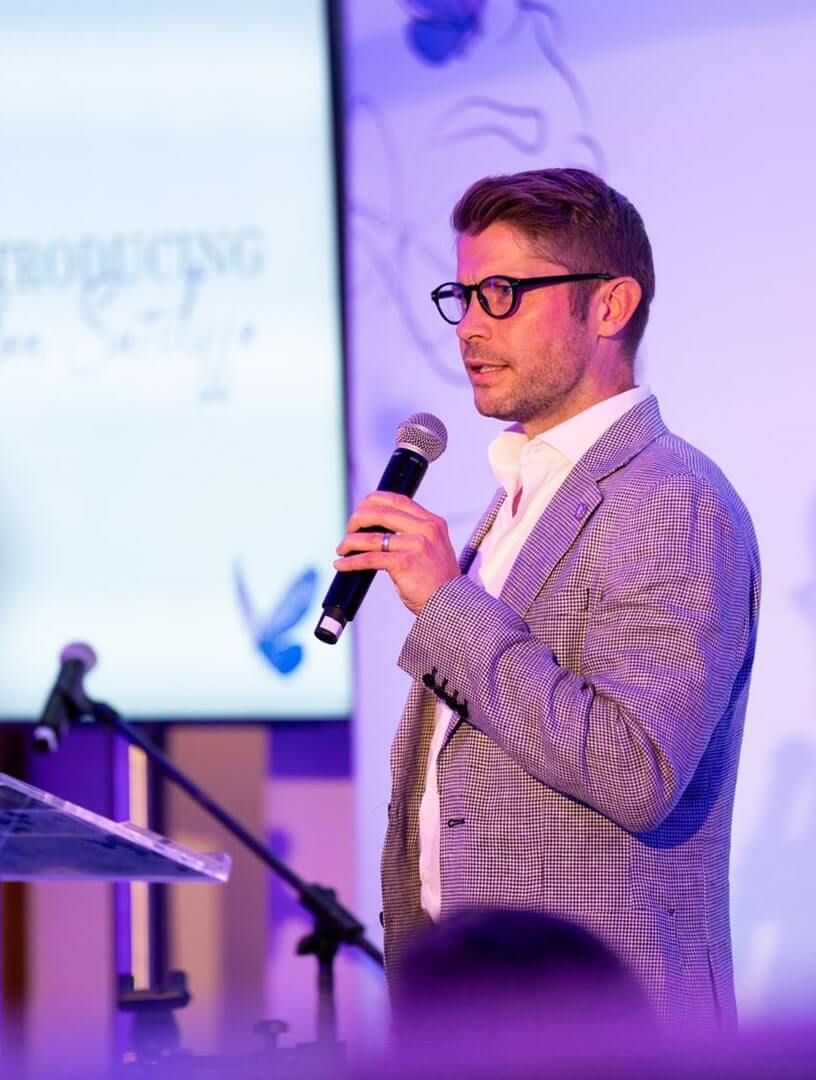Back in May 2019, the Caudwell International Children’s Centre (CICC) officially opened its doors to the public.
The centre based in Newcastle-under-Lyme, Staffordshire, was the UK’s first purpose-built diagnostic and therapy centre for childhood disability and research of neurodevelopmental conditions including autism.
John Caudwell, personally contributed over £10million of the cost towards the £18million state-of the-art facility, along with other generous donors who believed in the innovative project.
The CICC was designed in direct consultation with Caudwell Children beneficiaries and stakeholders with the aim to deliver a building which was fully inclusive, welcoming and fit for purpose. The centre allowed the Caudwell Children Team to develop valuable core services to change the lives of disabled and autistic children, which were designed to unlock a child’s true potential.
“From its inception, the CICC was always meant to be a place for all children and people to feel comfortable, regardless of their individual needs and differences. By really closely listening and understanding how our beneficiaries experience the world around them we were able to inform the design to ensure the environment we built was not only perfect for them, but for everyone that used it.
“Five years on and every day we still receive comments from visitors and staff about what a wonderful place it is to be; everyone at Caudwell Children is incredibly proud of what we’ve built and continue to use it to help inform best practice for other buildings and environments. It’s a wonderful place to work and also a beacon of positivity about the changes we want to make to the world for all disabled and autistic children in the future.”
Ben Sutcliffe – Senior Director at Caudwell Children
Since 2020 Caudwell Children have
- Completed 1336 Autism Assessment
- Helped 1272 families with our Workshops
- Provided 2608 Short Breaks places
“Great building, this amazing centre will help so many young people and change the lives of so many both locally and nationally.”
Kevin Healey – Founder of Staffordshire Adults Autistic Society

CICC Design Process
James Pass was the lead architect on the pioneering project, while working for multi-disciplinary consultant C4 Projects. Working closely with Caudwell Children, they investigated the usage of light, texture, colours and acoustics to help children with their sensory processing.
Sensory Rooms
Sensory rooms were designed to support occupational therapy and provide a functional part of the charity’s autism assessments, processing children’s sensory needs. The rooms have a range of equipment including therapy balls, scooter boards, swings and tactile and visual materials.

Quiet Spaces
Early design consultation with children and their families showed a preference for internal spaces with comfortable quiet areas featuring cushions and soft furnishings. These spaces create a calm environment where autistic children can retreat to if they become overwhelmed or over stimulated.
Acoustics, lighting and colour
The CICC adopts a wide neutral colour scheme with the addition of variable LED colour washes in each assessment suite. This is so children can select a colour they feel most comfortable with. Lighting has been designed to illuminate areas without glare, confusing reflections or shadows while providing adequate and appropriate lighting levels to all areas. Solor controlled glazing has been utilised throughout the centre to reduce solar glare, minimising the risk of over stimulation or distraction.

Outdoor Spaces
The CICC has a number of outdoor spaces for families to enjoy, including a wild sensory garden that was designed by children. Outdoor spaces are important for self-regulation.
“Really good work. Filling a real gap for families and young people.” Chris
James and his team introduced a curvilinear navigational strategy that is both functional and highly aesthetic. The CICC was designed to guarantee there were no blind corners, ensuring that people could see where they were going. Knowing what or who is ahead can give autistic people a sense of safety, instead of relying on signs to navigate.

The floor plan was designed with a figure-of-eight in mind, so those using the building can go in whatever direction they prefer and still won’t get lost, evidently finding their way back to their starting point, reducing potential sources of anxiety.
How the CICC has helped to change children’s lives
Over the last 5 years, we’ve welcomed thousands of children and their families lovingly through the centre’s doors. Every child’s story is different but the outcome has always remained the same, Caudwell Children have helped to change their life, whether that’s through vital mobility and sensory equipment, family workshops, autism assessments or just being there to listen.
“Caudwell Children changed our lives. After Fred’s autism diagnosis, it was amazing to finally have answers as to why some of the difficulties we were having were happening. We’ve never left Caudwell Children since, Fred loves the centre so we are here all the time, its Fred’s favourite place, he loves it.” Katie Fox
To read more of our incredible stories click here: https://www.caudwellchildren.com/this-is-us/stories/
CICC Future Plans
Caudwell Children are constantly evolving, providing a range of practical and emotional support services for children and young people aged 0-24, continuing to research neurodevelopmental conditions, with the aim of providing additional assessments in the future.
With Thanks to CICC Donors and Supporters
The Mair Family
Mr Mark Hackett
Mr Peter Jackson
Mr David and Mrs Alexis Lewis
Children’s Hand Hygiene Company
Howarth Timber and Building Supplies
Mr Jay Rutland
Marcus Howe and Camilla Howe
)

)
)
)
)